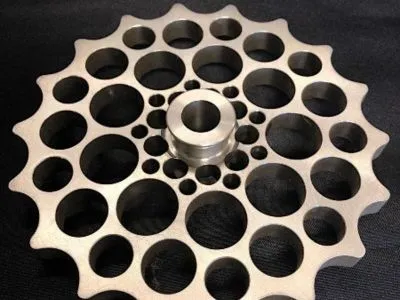 As a precision machining company, achieving parts with extremely tight tolerances is essential to delivering high-quality results. But what defines the tightest tolerance, and how close can we actually get? Let’s take a closer look at the limits of precision machining and what it takes to achieve ultra-tight specifications.
As a precision machining company, achieving parts with extremely tight tolerances is essential to delivering high-quality results. But what defines the tightest tolerance, and how close can we actually get? Let’s take a closer look at the limits of precision machining and what it takes to achieve ultra-tight specifications.
Understanding tolerances is key in manufacturing. They are usually measured in microns (μm) or thousandths of an inch (0.001"). While standard machining operations often aim for +/- 2 to 5 thousandths of an inch, the most advanced manufacturers push these boundaries. In some cases, tolerances can be as tight as a few microns—sometimes even less than 10 microns. This level of precision is crucial in industries where even the smallest deviation can lead to failure.
Microns and Thousandths of an Inch
Tolerances are typically measured in either microns (μm) or thousandths of an inch (0.001"). Most general machining can achieve +/- 2-5 thousandths of an inch. However, the tightest tolerances push dimensions to within mere microns. Some consider anything under 10 microns to be extremely tight. Leading precision machine shops routinely hold tolerances of 5 microns or less on complex parts.
Medical Device Manufacturing
The medical device industry is one of the most demanding when it comes to precision. Implants, surgical tools, and diagnostic equipment all require micron-level accuracy. Even the slightest variance could lead to serious consequences in a medical setting. Top manufacturers can maintain tolerances as tight as 1-3 microns for critical applications like laser eye surgery, where perfect alignment and clearance are vital.
Aerospace Component Tolerances
The aerospace sector also demands extreme precision. Components must meet exacting standards due to factors like weight reduction, tight clearances, and performance requirements. Many aerospace parts operate at 2 microns or less. Achieving such tight tolerances is not just about the machines—it's about the expertise, process control, and quality assurance that go into every part.
Limits of Modern Machining
While sub-micron tolerances are possible, they challenge the limits of current machining technology. Thermal drift, vibrations, and tool wear can all affect precision, even on the most advanced CNC machines. For many applications, 2-5 microns remain the practical limit. Going below 1 micron requires specialized equipment, refined techniques, and a deep understanding of material behavior at the microscopic level.
Let Cheetah Precision Machining Tackle Your Tightest Tolerance Needs
Modern precision machining has evolved to meet the demands of industries like medical and aerospace. While sub-1-micron work is technically possible, it's rare and requires exceptional skill and equipment. At Cheetah Precision, we specialize in achieving tolerances from 1 to 5 microns on complex parts. With advanced 5-axis milling, strict quality control, and decades of experience, we deliver reliable precision for both prototypes and large-scale production. Whether you're looking for expert guidance or high-volume manufacturing, we're here to help. Contact us today at (651) 633-4566 to learn more about our services.
Click to learn more about us.
Pet Granulating Line,Pet Flake Granulation Machine,Custom Grafting Modification Granulator,Grafting Chain Extender Granulation Line
Jiangsu Kunwei Langsheng Equipment Technology Co., Ltd , https://www.kunweilanxess.com